Related Research Articles
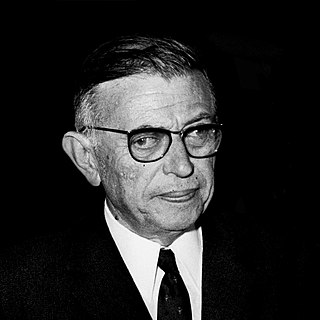
Jean-Paul Charles Aymard Sartre was a French philosopher, playwright, novelist, screenwriter, political activist, biographer, and literary critic, considered a leading figure in 20th-century French philosophy and Marxism. Sartre was one of the key figures in the philosophy of existentialism. His work has influenced sociology, critical theory, post-colonial theory, and literary studies. He was awarded the 1964 Nobel Prize in Literature despite attempting to refuse it, saying that he always declined official honors and that "a writer should not allow himself to be turned into an institution."

Sigmund Freud was an Austrian neurologist and the founder of psychoanalysis, a clinical method for evaluating and treating pathologies seen as originating from conflicts in the psyche, through dialogue between patient and psychoanalyst, and the distinctive theory of mind and human agency derived from it.
French literature generally speaking, is literature written in the French language, particularly by citizens of France; it may also refer to literature written by people living in France who speak traditional languages of France other than French. Literature written in the French language by citizens of other nations such as Belgium, Switzerland, Canada, Senegal, Tunisia, Algeria, Morocco, etc. is referred to as Francophone literature.
This article contains information about the literary events and publications of 1905.
Being and Nothingness: An Essay on Phenomenological Ontology, sometimes published with the subtitle A Phenomenological Essay on Ontology, is a 1943 book by the philosopher Jean-Paul Sartre. In the book, Sartre develops a philosophical account in support of his existentialism, dealing with topics such as consciousness, perception, social philosophy, self-deception, the existence of "nothingness", psychoanalysis, and the question of free will.
This article contains information about the literary events and publications of 1964.
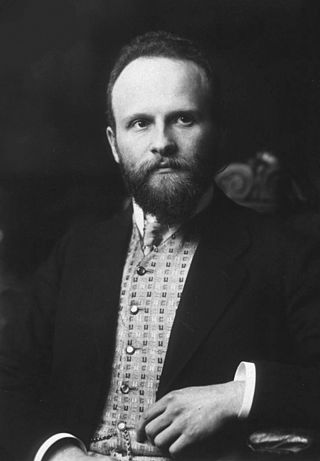
Robert Bárány was an Austro-Hungarian otologist. He received the 1914 Nobel Prize in Physiology or Medicine for his work on the physiology and pathology of the vestibular apparatus.
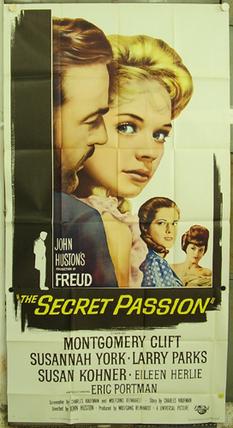
Freud: The Secret Passion, or simply Freud, is a 1962 American biographical drama film directed by John Huston and produced by Wolfgang Reinhardt. Based on the life of Austrian neurologist Sigmund Freud, it stars Montgomery Clift as Freud and Susannah York as his patient Cecily Koertner. Other cast members include Larry Parks, Susan Kohner, Eileen Herlie, Eric Portman, and David McCallum. The screenplay was by Charles Kaufman and Reinhardt, with some elements from a script by Jean-Paul Sartre, who withdrew his name from the film.

Cultural Amnesia is a book of biographical essays by Clive James, first published in 2007. The British title, published by MacMillan, is Cultural Amnesia: Notes in the Margin of My Time, while the American title, published by W. W. Norton, is Cultural Amnesia: Necessary Memories from History and the Arts. The cover illustration was adapted from a work by the German Modernist designer Peter Behrens.

The Words is the philosopher Jean-Paul Sartre's 1963 autobiography.
This is a timeline of the modern development of psychiatry. Related information can be found in the Timeline of psychology and Timeline of psychotherapy articles.
1992 in philosophy
2012 in philosophy
1944 in philosophy
Censorship (psychoanalysis) (Zensur) is the force identified by Sigmund Freud as operating to separate consciousness from the unconscious mind.

The 1964 Nobel Prize in Literature was awarded the French writer Jean-Paul Sartre (1905–1980) "for his work which, rich in ideas and filled with the spirit of freedom and the quest for truth, has exerted a far-reaching influence on our age".
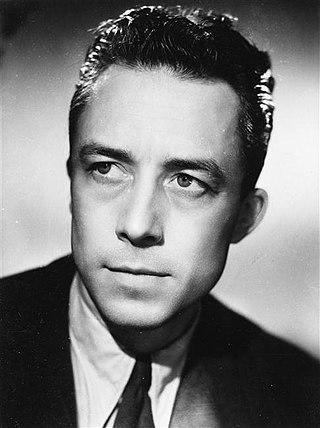
The 1957 Nobel Prize in Literature was awarded the French writer Albert Camus (1913–1960) "for his important literary production, which with clear-sighted earnestness illuminates the problems of the human conscience in our times." He is the ninth French author to become a recipient of the prize after Catholic novelist François Mauriac in 1952, and the fourth philosopher after British analytic philosopher Bertrand Russell in 1950.
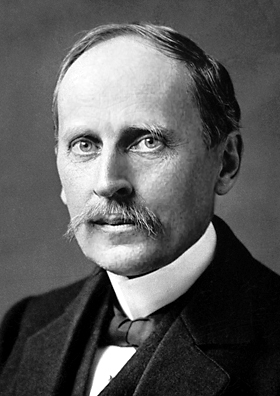
The 1915 Nobel Prize in Literature was awarded to the French author Romain Rolland (1866–1944) "as a tribute to the lofty idealism of his literary production and to the sympathy and love of truth with which he has described different types of human beings." The prize was awarded the following year on November 9, 1916 and he is the third Frenchman who became a Nobel recipient for the literature category.
References
- ↑ Sartre, Jean-Paul. "Sartre on the Nobel Prize". The New York Review of Books. Retrieved 3 February 2013.
- ↑ "Sigmund-Freud-Preis". Deutsche Akademie für Sprache und Dichtung. Archived from the original on 14 May 2011. Retrieved 3 February 2013.